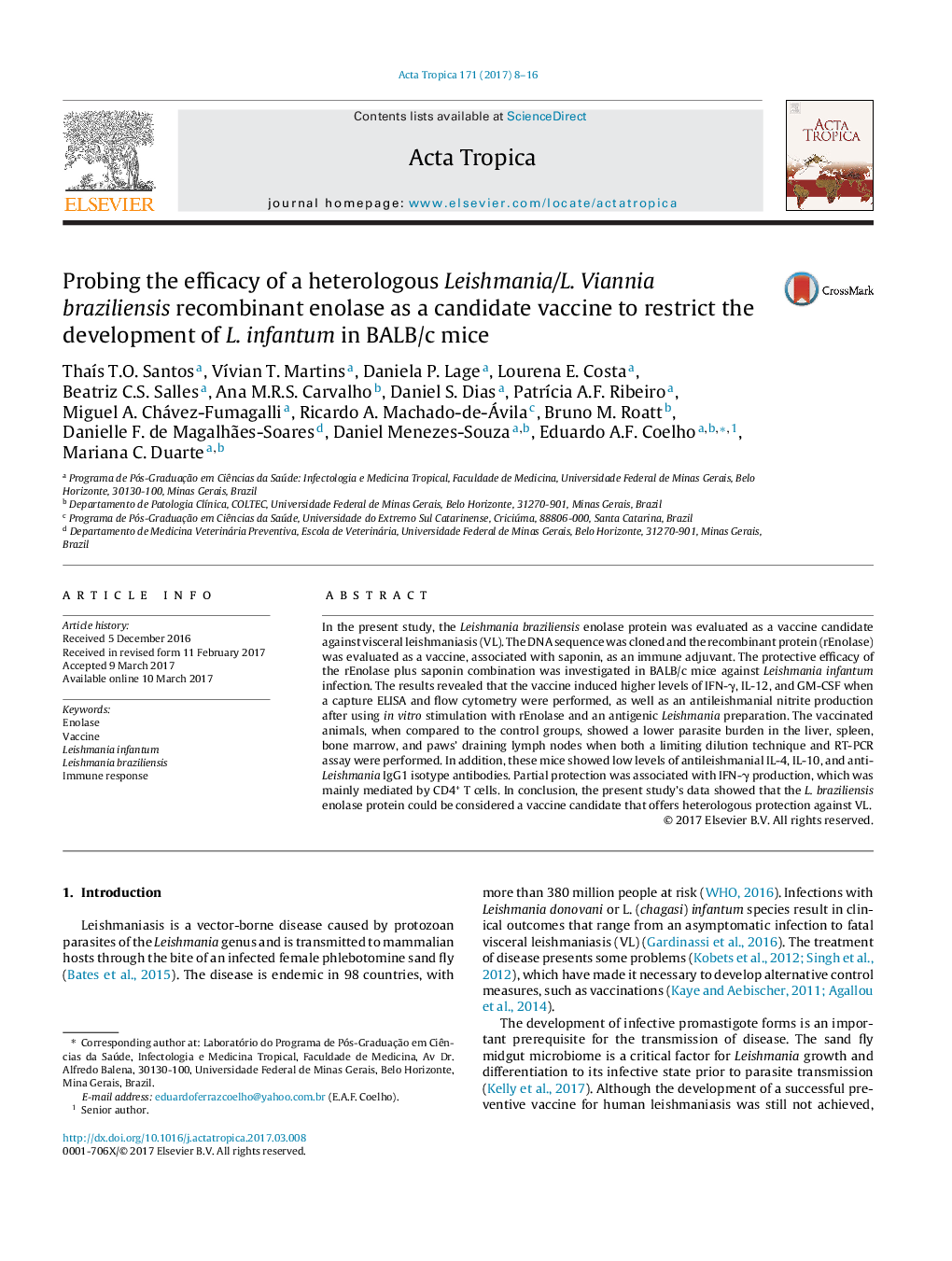| Article ID | Journal | Published Year | Pages | File Type |
|---|---|---|---|---|
| 5671154 | Acta Tropica | 2017 | 9 Pages |
â¢Enolase protein was selected by an immunoproteomic approach in L. braziliensis..â¢The immunogenicity and protective efficacy was evaluated in a murine model.â¢A partial parasitological protection was reached against L. infantum.â¢Enolase showed to be a promising candidate to protects against visceral leishmaniasis.
In the present study, the Leishmania braziliensis enolase protein was evaluated as a vaccine candidate against visceral leishmaniasis (VL). The DNA sequence was cloned and the recombinant protein (rEnolase) was evaluated as a vaccine, associated with saponin, as an immune adjuvant. The protective efficacy of the rEnolase plus saponin combination was investigated in BALB/c mice against Leishmania infantum infection. The results revealed that the vaccine induced higher levels of IFN-γ, IL-12, and GM-CSF when a capture ELISA and flow cytometry were performed, as well as an antileishmanial nitrite production after using in vitro stimulation with rEnolase and an antigenic Leishmania preparation. The vaccinated animals, when compared to the control groups, showed a lower parasite burden in the liver, spleen, bone marrow, and paws' draining lymph nodes when both a limiting dilution technique and RT-PCR assay were performed. In addition, these mice showed low levels of antileishmanial IL-4, IL-10, and anti-Leishmania IgG1 isotype antibodies. Partial protection was associated with IFN-γ production, which was mainly mediated by CD4+ T cells. In conclusion, the present study's data showed that the L. braziliensis enolase protein could be considered a vaccine candidate that offers heterologous protection against VL.
Graphical abstractDownload high-res image (140KB)Download full-size image
